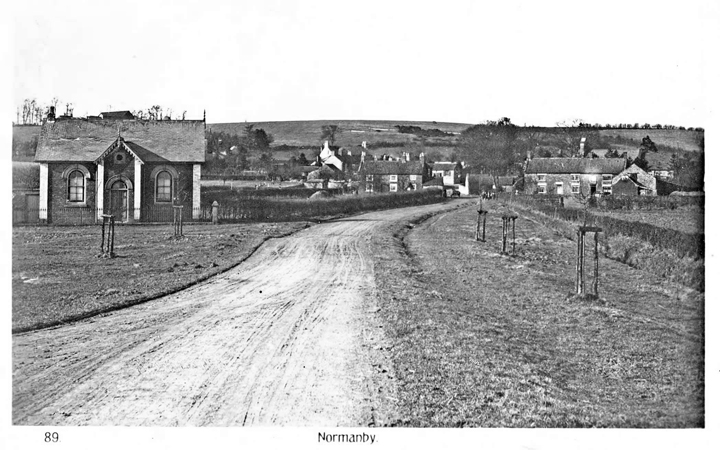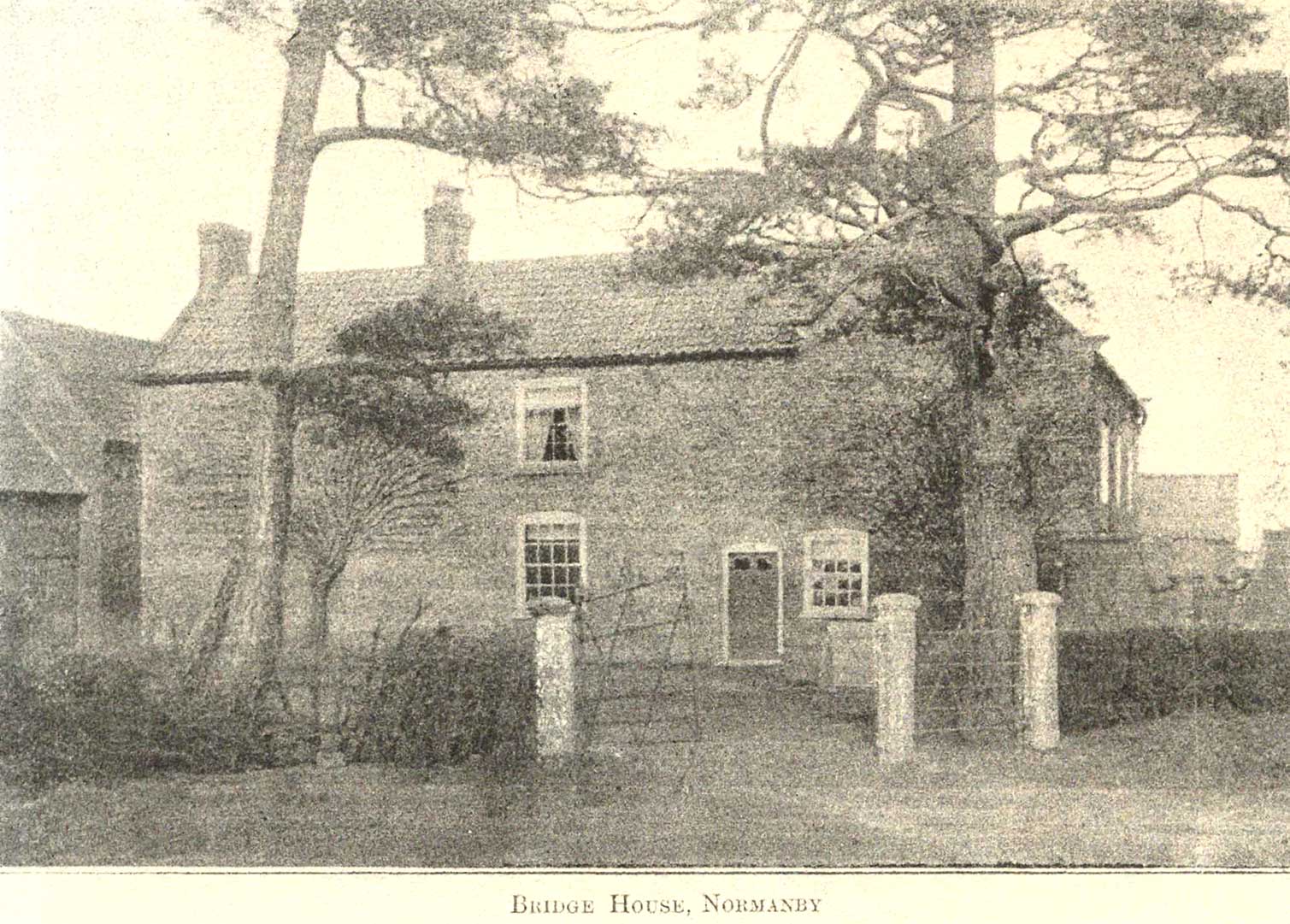Joseph Smith’s Normanby
“The free fair homes of England,
Long, long in hut and hall,
May hearts of native proof be
reared,
To guard each hallowed wall.
And green forever be the groves,
And bright the flowery sod,
Where first the child's glad spirit loves
It’s country and it's God."
Normanby
is a picturesque little village lying at the foot of a rather lofty hill, and
situated on the high road between Kirbymoorside and Malton. The church is a
quaint old Norman edifice, with chancel and nave; a great part was renewed in
1718, and it has again recently been restored at great cost, which has mostly
been raised by public subscription. The interior now presents a bright and
very comfortable appearance. The village is on the western bank of the river
Seven, a fine trout stream flowing from the moors through Sinnington and the
quiet, homely little village of Marton; winding through open pastures and a
long stretch of lowland country it joins the river Rye. After a heavy rain on
the moors this stream rises very rapidly and becomes a swift torrent, the
volume of water carrying all before it. For many years the agriculturists
suffered great loss and damage by this stream bursting its banks and
inundating the country for miles.

Space will not admit for us to enumerate the
many exciting incidents occasioned by these floods. We note from Joseph
Smith's diary how a person had a very narrow escape from drowning in 1868. A
man on driving from Malton thought he would let his horse have a drink in the
stream, where near the bridge is a watering place, being the place of the old
ford. The river was partly swollen by recent rains, and in driven in the
horse lost its feet and slipped quickly into midstream; very fortunately he
was seen by some men at the bridge house, who at once came to his assistance,
and by means of ropes, etc., all were pulled safe to land, after a voyage of
nearly a quarter of a mile.
The banks of the river have of late years been
heightened and the country has fortunately, through this means and fine
seasons, been exempt from these devastating floods. We quote here from the
diary, "that on September 5th, 1872, it was the highest flood at Marton and
Normanby ever known."
Some years ago the annual Horticultural Show at
Normanby was one of the attractions of the district. The late worthy rector,
the Rev. James Hill, took an especial interest in this show and the welfare of
the village in general, always reading in a loud, sonorous voice, the list of
successful exhibitors at the show as soon as the judging was completed.
Through Mr. Hill's absence on one occasion this honour fell to Joseph Smith,
who amused the people by facetiously explaining that, although he was not a
horticulturist, he hoped they would bear with him in the pronunciation of the
long technical names of the respective plants and flowers.
A Mr. John Williams, going out from Horncastle as
a missionary to the Fiji Islands, furnished Joseph Smith, through his
relatives and friends, with valuable information respecting this cannibal and
hostile people. Joseph Smith being a great reader and thinker and having
a very retentive memory, nothing escaped his vigorous
mind, therefore it was a great treat to listen to his speeches on these
occasions. Mr. Williams was a cabinet maker, and Mrs. Milbah Smith had
some very handsome furniture which this skilled workman made before he left
for the mission field.

On the 4th of March, 1861, Joseph Smith's brother
left the farm (Bridge farm) at Normanby, which he had held since his father's
death, and sailed for South Africa, where he finally took up his abode. He
also had taken a great interest in the Normanby Sunday school, and was much
esteemed by the people, who presented him with a handsome testimonial the
night before he left.
His brother Joseph then took the farm and continued it
until 1869, when the new owner (John Wood) came to reside at the house.
Having both these farms to manage-nearly 600 acres-people thought he would
not have so much time for public work, but as one of his old friends remarked,
he never met with anyone who could arrange his business affairs in such an
expeditious manner," so that all this extra work only seemed to give a greater
impetus to our active friend, who was never "slothful in business, but fervent
in spirit, serving the Lord." We remember him in the summer months,
toiling all day with his men amongst the hay till the last minute at night,
and then riding away to some missionary meeting held in a
village miles away, where he entertained his audience with some telling
description of missionary enterprise, especially India and Fiji.
Back to
Joseph Smith
Top